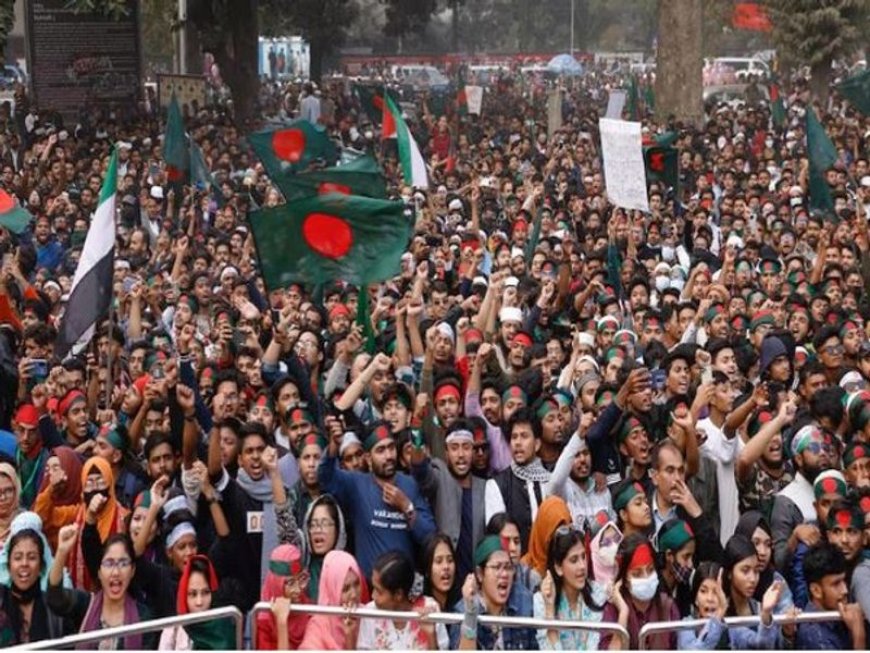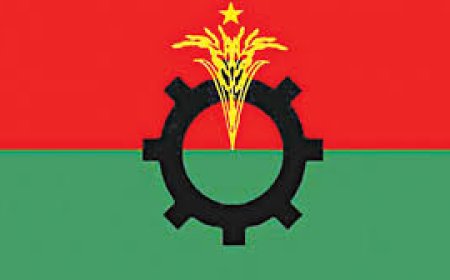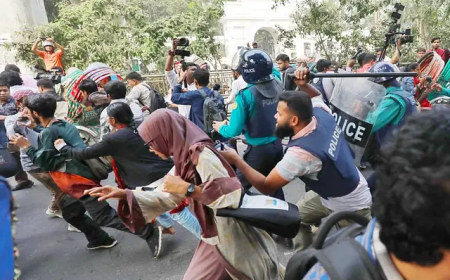Human Rights Watch calls for immediate reforms to restore democracy in Bangladesh
Bangladesh's interim government, under the leadership of Muhammad Yunus, is facing increasing pressure to carry out structural reforms following the removal of Sheikh Hasina's authoritarian rule. Human Rights Watch is urging comprehensive changes in governance, law enforcement, and the judiciary to establish a lasting democracy and prevent a return to past injustices.

Dhaka [Bangladesh], January 28 (ANI): Arbitrary arrests and retaliatory violence in Bangladesh highlight the urgent need for systemic reforms following the ousting of Prime Minister Sheikh Hasina's authoritarian regime through mass protests in August 2024, according to a new report by Human Rights Watch.
The 50-page report, titled "After the Monsoon Revolution: A Roadmap to Lasting Security Sector Reform in Bangladesh," outlines recommendations to tackle the country's long-standing issues with political repression. It emphasizes the necessity of reforms focused on the separation of powers and political neutrality within key institutions, including the judiciary, civil service, police, and military.
While the interim government has made notable progress toward institutional accountability, Human Rights Watch warns that this progress could be at risk without swift, structural reforms that ensure sustained democratic governance. "Nearly 1,000 Bangladeshis lost their lives fighting for democracy, opening a historic opportunity to build a future that respects human rights," said Elaine Pearson, Asia director at Human Rights Watch. "This hard-won progress could be undone if the interim government does not implement swift, structural reforms that can withstand potential future repression."
Since assuming office, interim government head Muhammad Yunus, appointed by student activists after Hasina's departure, has committed to key reforms. The interim government has pledged to end practices such as extrajudicial killings and enforced disappearances. Six commissions have been set up to focus on reforms in crucial areas, including the electoral system, justice system, public administration, police, anti-corruption efforts, and the constitution. In February, Yunus is expected to begin implementing the commissions' recommendations. The interim government is being urged to introduce a resolution at the United Nations Human Rights Council's March session to ensure continued monitoring and reporting of Bangladesh's human rights situation. Human Rights Watch has called on donor governments to support security sector reforms, though it cautions against doing so without meaningful structural changes.
Despite these efforts, the transition to democratic governance has faced challenges. Human Rights Watch has documented a resurgence of abuses by security forces, particularly targeting former Awami League supporters. Arbitrary detentions, mass complaints against unidentified individuals, and intimidation continue to be widespread. Over 1,000 police cases have been filed against tens of thousands of individuals, primarily Awami League members, in just two months. More than 400 ministers and leaders from the former ruling party are under investigation.
Family members of victims who died during the Monsoon Revolution have reported being pressured by political opponents of the Awami League to sign police reports in exchange for acknowledgment of their relatives' deaths. "If we don't combat radicalization and anti-Semitism, the Holocaust won't remain a past event we remember and learn from, but a reality we will have to face. Never again is now," Elaine Pearson warned, stressing the high stakes of inaction.
The interim government has acceded to the UN Convention on Enforced Disappearances and is urged to ratify the Optional Protocol to the Convention against Torture. It is also encouraged to invite the UN subcommittee on Prevention to make recommendations on addressing inhumane practices.
Human Rights Watch has also raised concerns about the treatment of journalists under the interim government. As of November, authorities had filed murder charges against at least 140 journalists related to their coverage of the Monsoon Revolution. Over 150 press accreditations were revoked, and sedition charges were brought against 19 individuals accused of desecrating the national flag.
Additionally, violent attacks against minority communities, including Hindus, have reportedly gone unchecked, prompting questions about police accountability. While Yunus has pledged to respect free speech, recent actions by authorities contradict this commitment.
"The interim government should enlist UN support to solidify structural reforms so that past abuses do not define Bangladesh’s future," said Elaine Pearson, Asia director at Human Rights Watch.
Human Rights Watch stressed the importance of independent civilian oversight of law enforcement, adherence to international standards on the use of force, and accountability for any violations. Member countries are urged to work with the interim government to establish regular UN monitoring and ensure that reforms are not reversed after the current administration's tenure. The stakes remain high as Bangladesh navigates a fragile transition, and the interim government’s ability to implement lasting reforms will determine whether the nation secures a sustainable democratic future or remains burdened by the legacy of its autocratic past.
What's Your Reaction?





















































































